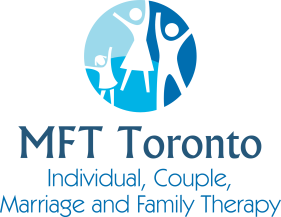Types of Therapy
Learn more about our therapeutic approaches ...
Emotionally Focused Therapy
Designed for couples, modified for families, and applies to all individual relationships ...
Individuals who are caught in an emotional dance, experience repetitive unsatisfying patterns of behavior driven by conflicted emotions. The emotional "dance" eventually creates disconnection and increasing polarization as the individuals push each other away with their reactions to the negative emotion. Typically one partner will become pursuant and the other will become avoidant, although sometimes both become pursuant or both become avoidant. Regardless of the dance steps, the couple's inability to communicate or resolve hard feelings worsens over time driving increased levels of relational dissatisfaction, as one's reactions fuel the other's negative emotions and vice versa.
The principles of Emotionally Focussed Therapy can be used for couples, family members, or individuals to understand and breakthrough the confusion of a complex relational dynamic in any facet of life. It is based on Attachment Theory, and seeks to repair connection within relationships. The work begins by bringing understanding to the underlying emotional process which creates deescalation, and then moves on to heal attachment injuries, bringing renewed connection, joy, and emotional freedom. Amongst these signs, we know therapy has been succesful when it creates a "hold me tight" embrace.
Attachment Therapy
A secure attachment bond in one relationship has the power to heal other relationships ...
Attachment theory considers styles of attachment between a child and original caregivers. The theory seeks to understand one's formative style so as to understand one's propensity toward connecting in adult relationships. The theory is that how one learns to connect or disconnect as an infant or child with respect to anxiety and tolerance for disconnection is highly correlated to how one connects in adulthood, particularly in the absence of therapeutic or restorative measures such as alternative transformative relationships.
Adult relational attachment styles fit into two categories (secure or insecure), and four quadrants: secure, pursuant, avoidant, and pursuant-avoidant.
By understanding one's attachment style, and in becoming mindful of one's imbalance between esteem for self and esteem for others, it's possible that one can grow in the ability to connect securely with others, by building on a therapeutic relationship as a base. Therefore a relationship with a counsellor or therapist can become an alternate transformative relationship.
Faith as a Basis for Therapy
A secure attachment bond with God has the power to heal one's full being ....
It is beleived that a relationship with God can represent another such alternative tranformative relationship. In this way the relationship with God can then become the vehicle for restoration of other relationships in one's life. Thus Spirituality can be another "entry way" from an integrative therapy approach into healing relationships with others, and healing the self including thinking, feeling, behaving, and relating.
Since the well being of the body is a sum total of the well being of the heart, mind, strength, and soul, it follows that a transformative relationship with God can manifest itself not only in cognitive, emotional, behavioral, and relational healing, but in physical healing as well.
Relationally Integrative Therapy
Different strokes for different folks ...
A personal approach to therapy means it's possible that each individual will benefit from a different therapeutic entry point into change. One entry point is rational logic or thinking (eg., Cognitive Behavioral Therapy), another is emotions (eg., Emotionally Focussed Therapy), another behavioral in nature (eg., Mindfullness), another spiritual (eg., faith based counselling) and another multi-faceted (eg., Dialectical Behavioral Therapy).
While there may be different entry points to growth, ultimately restoring relational connection will be key in healing all areas of thinking, feeling, and behaving. Integrative therapy provides flexibility for adapting to the best entry point for the individual and it holds relationship, non-judgment, and radical acceptance as keys to transformative growth.





